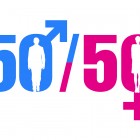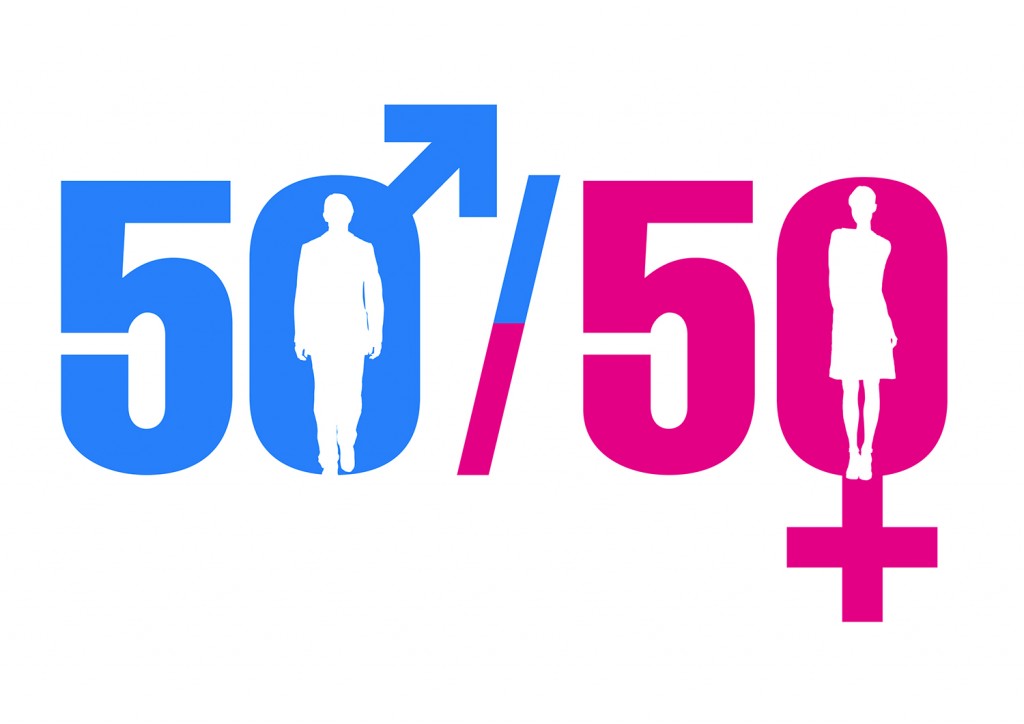
Jan 22, 2015
50/50
— Rebecca Olson
Berlin SDB Church, NY
A dear friend once said to me, “I wouldn’t be a feminist if I didn’t think Jesus was one.” This really struck a chord with me — Jesus was certainly revolutionary when it came to calling women equal to men. The first person he ever revealed his identity as the Messiah to was a woman. And on top of that, a Samaritan, at a well in John 4. This was Jesus’ first declaration that his salvation would be for all people. Before saying outright to any of his disciples that he was God incarnate, he said so to a woman, and one that most Jews would never dare to associate with. We know this definitely wasn’t normal behavior because verse 27 says that the disciples “marveled that he was talking with a woman.”
I could see what my friend was saying. But there had always been something about feminism that struck a wrong chord with me — despite its basic definition of equality between men and women, feminism seemed to go beyond that most of the time. There were just too many extreme views which I disagreed with, including the idea that a woman can do anything a man can do, and vice versa — I personally believe in the traditional complementarian views of a man being the spiritual leader of the household and a woman being his emotional support and helpmate.
Nevertheless, I struggled with this for some time, until I was sent an article by popular Christian blogger Matt Walsh. While reading this article, Walsh wrote one thing that stuck out to me incredibly. Out of context, the direct quote makes little sense, so I’m going to paraphrase. Walsh said that perfect feminism already exists within perfect Christianity. This one sentence cleared the whole issue up for me — why I strongly felt that men and women were created equal, but still shied away from being called a feminist.
Perfect feminism exists within perfect Christianity.
It’s incredible to me that Walsh wrote this as a side thought in an article about modesty. I think it’s worthy of a whole article, and I intend to write that article here. Perfect feminism — the equality of men and women, without all the bells and whistles that bothered me, without the pro-choice rallies, without the blatant disregard of modesty, without the political affiliations — already exists within perfect Christianity.
Now, I see why some might insist that feminism is still important as an independent movement. After all, perfect Christianity certainly doesn’t exist in this world. I know plenty of Christians who are incredible examples of faith, whom I look up to and go to for advice, who could surely tell you exactly why they are not perfect Christians. “I don’t read my Bible on a regular basis.” “I’m really uncomfortable with prayer, and so I don’t pray all that often.” “I often fail to treat men and women as the equal yet different counterparts that God created them to be.”
Despite this lack of perfect Christians, I feel pretty strongly that perfect feminism is just an extension of Christianity. I have always believed that I could insert my Christianity for whatever else I believe, because all my beliefs and opinions are driven by my Christianity. There are many social issues that can be represented by the statement, “I am a Christian.” In this case, I am not a feminist, I am a Christian.
Have you ever heard of the “I need feminism because” meme? It’s a series of photos that people take and post online holding up signs with reasons why they need feminism. “I need feminism because I don’t want my gender to make choices for me.” “I need feminism because no one debates whether men can ‘have it all.’” “I need feminism because the worst thing you can call a man is a woman.” Well, I’m about to make a radical declaration.
I don’t need feminism because I have been created by a God who sent His Son to die for me, declaring in that simple act that I am no worse and no better than anyone else on this earth, male or female.
It’s this equality that is ultimately important. No matter what you believe about men and women — that there are
no distinctions in their roles in the church or at home, that women should stay home and raise children, that women should or shouldn’t be allowed to preach, teach, or speak in church — there still needs to be an underlying recognition of our inherent equality. God made us equal. We need to remember as we explore the dynamic that God created between the two genders that equality between them exists, no matter what.


